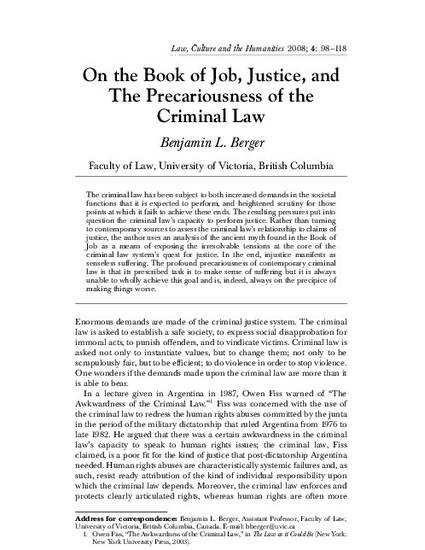
The criminal law has been subject to both increased demands in the societal functions that it is expected to perform, and heightened scrutiny for those points at which it fails to achieve these ends. The resulting pressures put into question the criminal law's capacity to perform justice. Rather than turning to contemporary sources to assess the criminal law's relationship to claims of justice, the author uses an analysis of the ancient myth found in the Book of Job as a means of exposing the irresolvable tensions at the core of the criminal law system's quest for justice. In the end, injustice manifests as senseless suffering. The profound precariousness of contemporary criminal law is that its prescribed task is to make sense of suffering but it is always unable to wholly achieve this goal and is, indeed, always on the precipice of making things worse.
